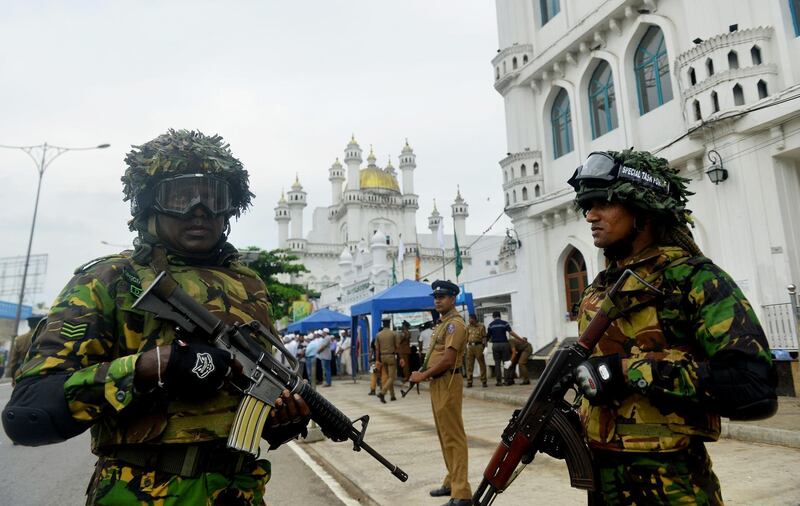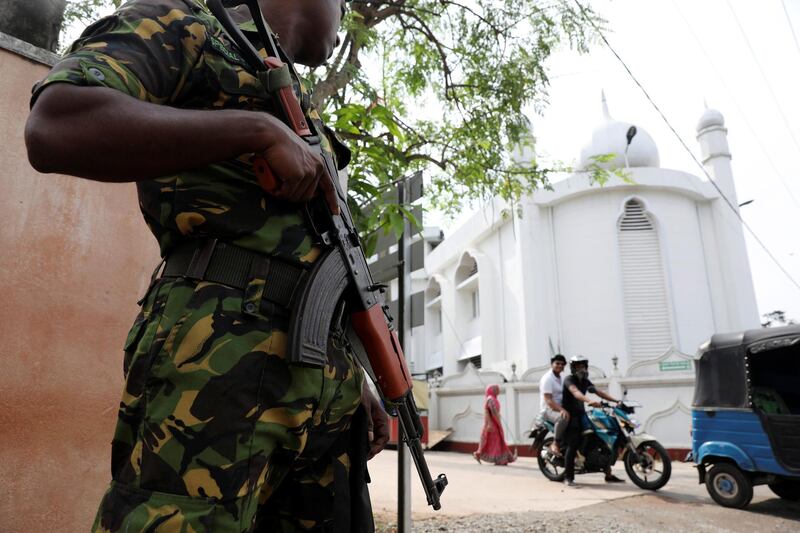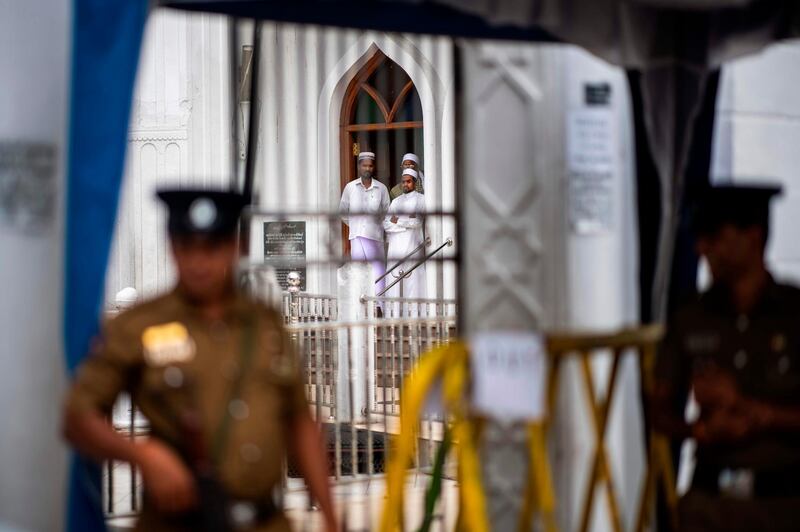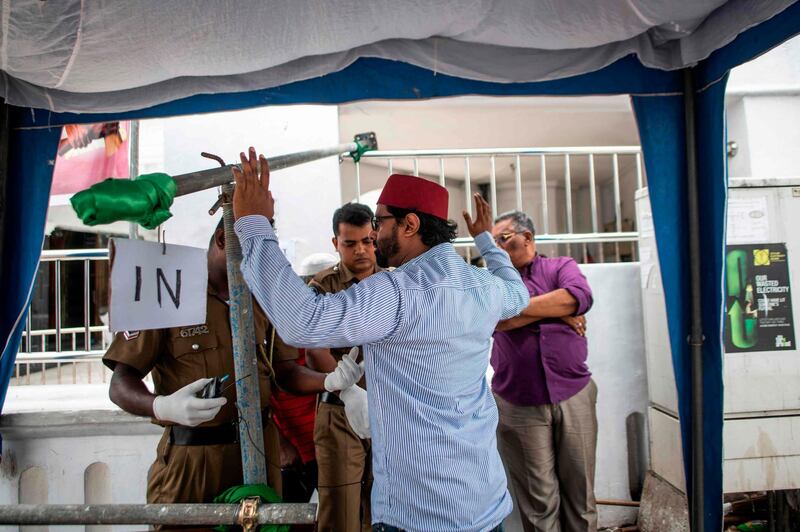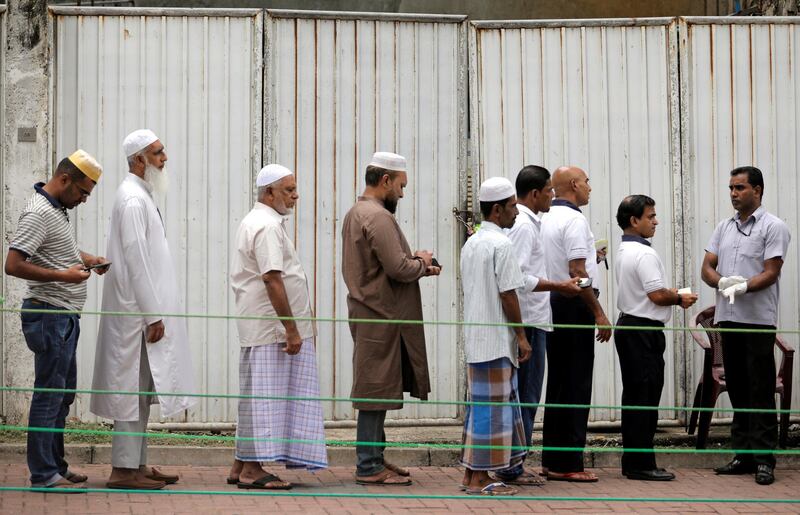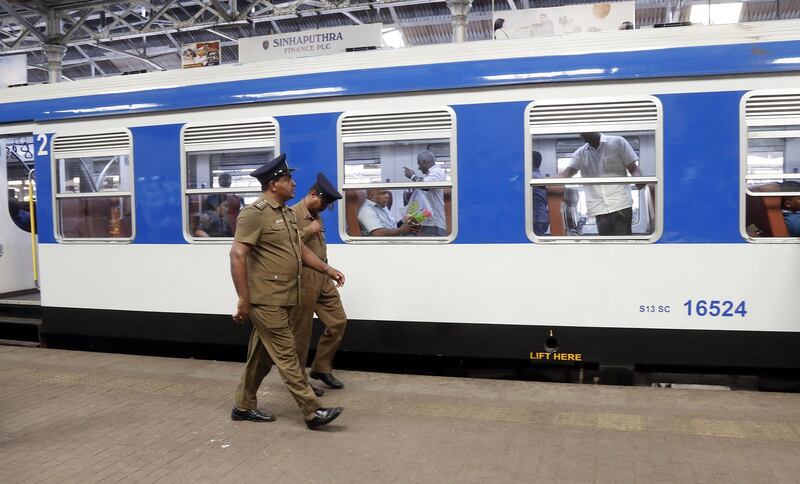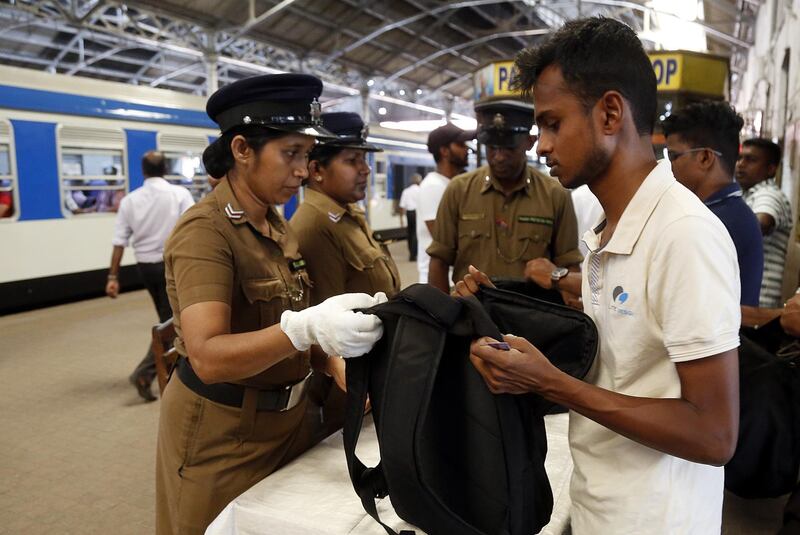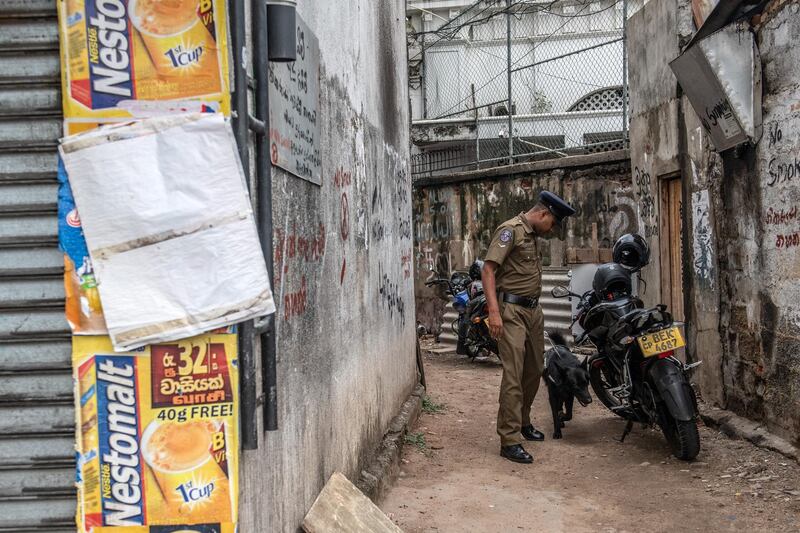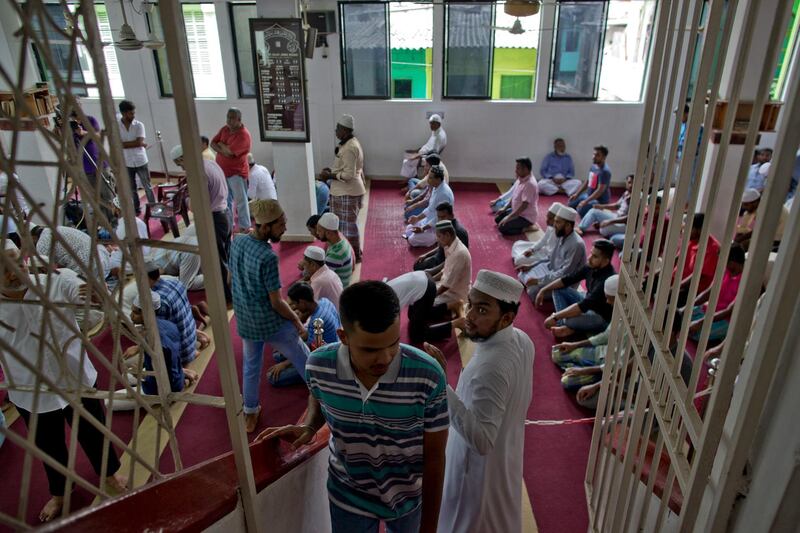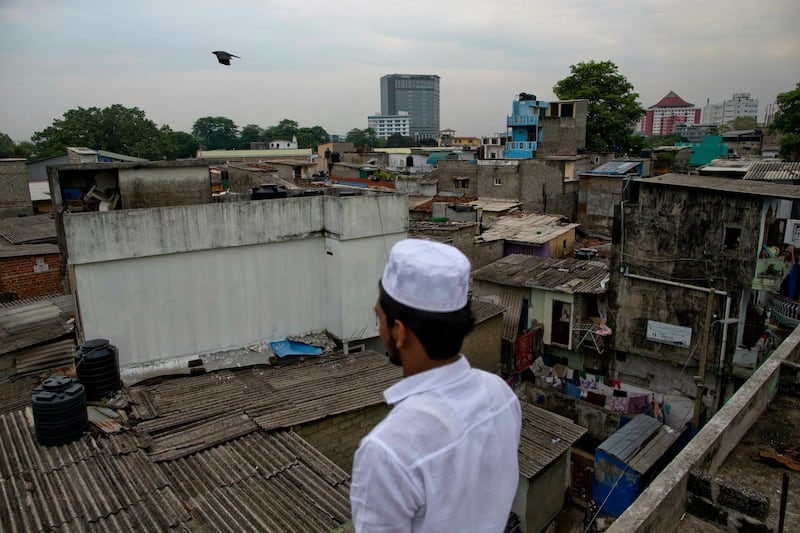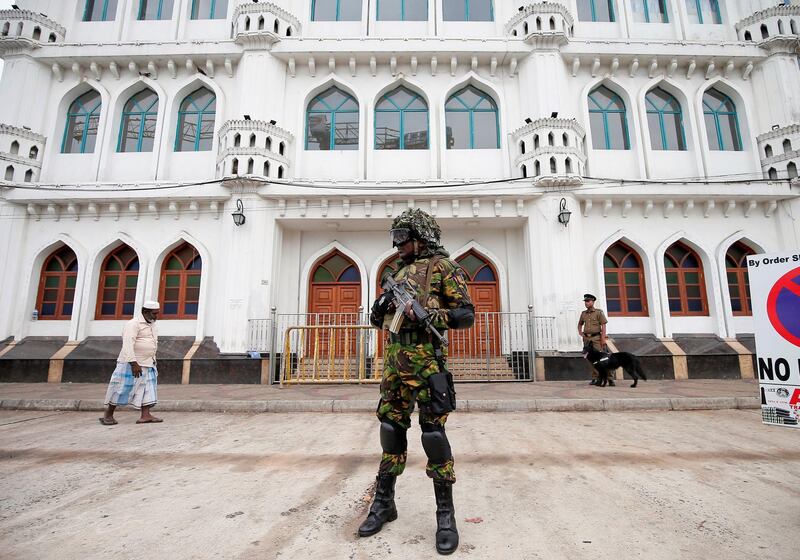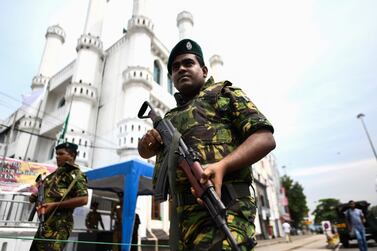Fears of revenge attacks kept many of Sri Lanka's Muslims away from mosques for the first Friday prayers since the Easter suicide bombings, despite security provided by armed police and sniffer dogs.
Some mosques cancelled prayers, while the Islamic affairs minister called on Muslims to pray at home instead, in solidarity with churches that have closed over security fears.
Other Muslims expressed fears that they could be targeted by Islamist hardliners, after the community's religious leadership said the attackers would not be buried at mosques in the country.
Among mosques that did hold prayers on Friday in the capital Colombo, attendance was thin, with some of the few worshippers who did show up saying they wanted to stand up to extremists.
"We are sending a message to extremists that we will not be scared or deterred," said Reyyaz Salley, chairman of the Dawatagaha Jumma mosque in the capital Colombo.
"But the main reason we are here is because we want to say a special prayer for the victims of the church bombings."
At least 253 people died on Easter Sunday when attackers blew themselves up at three churches and three hotels in co-ordinated blasts that officials blame on a local Islamist group, National Tawheed Jamaat. The extremist group ISIS has said it was behind the attacks.
The bombings have been condemned by leaders of Sri Lanka's Muslim minority but some in the community still fear a backlash from other religious groups.
About two dozen policemen and other armed personnel guarded the Dawatagaha Jumma mosque, which has been threatened by hardline Islamists in the past because it contains a Sufi shrine, which extremists consider idolatrous.
Police prevented people from walking or parking vehicles directly outside after rumours circulated on social media about possible car bomb attacks.
Sniffer dogs stood guard as police checked bags and patted down worshippers and journalists before letting them inside.
"We are not scared. We have to die one day and it can happen anywhere," Mr Salley said.
Many were put off, however.
Mr Salley said Friday prayers at the Dawatagaha Jumma mosque regularly attracted up to 700 worshippers, but only about 100 turned up this week.
Prayers were also cut short from the usual one hour to 15 minutes because of the security situation.
"I have come to pray here today because I pray here every day," said Ahamed Riza, 62, before listening to the imam deliver a sermon saying the Prophet Mohammed would have condemned the attacks.
About 330 kilometres away in Muslim-majority Kattankudy on Sri Lanka's east coast, people turned out in greater numbers.
More than 1,000 men and boys attended prayers at the town's main Mohiuddin Methaipali Jumma mosque.
"The attacks were carried out by a small group of people but some people are blaming the whole Sri Lankan Muslim community for this. It is not fair," said mosque official Mohammed Ramesh.
"The people who did this are not human beings. All Sri Lankans must unite against this: Buddhists, Christians, Hindus and Muslims.
"I have been praying five times a day for the Christian victims since the attacks happened," he added.
